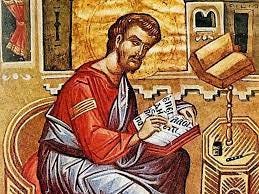If you are looking for the beginning of this study you can start HERE with the brief introduction. At the bottom of that introduction will be the links to each section of the study guide as it becomes available. For this study the English Standard Version is the translation that is being utilized and you can read it online HERE or pick up the copy of your choice from Amazon or your local book store. I find THIS EDITION to be useful for deeper study and annotation.
Virtues/Vices/Great Ideas: (Find them in the Text)
Destruction, Perseverance, Betrayal, Faith vs. Unbelief, Temptation, Light vs. Darkness, Despair
Grammar Questions: (The Information of the Text)
What did Jesus say would become of the Temple in Jerusalem?
About what did Jesus tell his disciples, “settle it therefore in your minds”?
What general advice did Jesus give concerning those who see the impending destruction of Jerusalem?
What did Jesus say to his disciples concerning “this generation”?
What did the Chief priests and officers promise Judas in return for betraying Jesus?
How did Jesus’ disciples know where to prepare the Passover feast?
What “new covenant” tradition (sacrament) did Jesus start during the Passover meal with his disciples?
When it comes to “greatness” what did Jesus teach his disciples about being different from the gentiles?
What did Jesus tell Peter he would do three times? When?
What “appeared from heaven” while Jesus was praying? What was the purpose of its coming?
With what action did Judas betray Jesus?
How did Jesus respond to the council’s demand, “If you are the Christ, tell us”?
Logic Questions: (Interpreting, Comparing/Contrasting, Reasoning)
Why does Luke place Jesus’ observation about the widow’s offering where he does? Consider the context (what comes right before and after this observation) when answering this question.
Jesus said, “some of you they will put to death” but then follows right after this by saying, “But not a hair of your head will perish.” How can both of these things be true?
Is the coming of the Son of Man a good thing or a bad thing?
Why did Jesus institute the practice of the Lord’s Supper?
Why is it fitting that the Lord’s Supper was started during the feast of Passover?
Why might Satan have asked to “sift” Simon (Peter) “like wheat” instead of any of the other disciples?
Why did Jesus tell his disciples to buy swords?
Why did Jesus hinder his disciples from fighting those who came to arrest him?
Why did Peter deny knowing Jesus?
Rhetoric Questions: (The Analysis of Ideas in the Text)
Should churches encourage people to give money to them who are having a hard time paying for the basic necessities of life? Why or why not? Defend your answer with Scripture and reason.
How often should churches practice taking The Lord’s Supper (communion/eucharist)? Defend your answer with reason and Scripture.
Jesus said, “Not my will, but yours, be done.” How many wills does Jesus have? Explain your answer carefully.
When should Christians defend themselves from those who would do them harm? What guidelines would you offer for making the decision to use force to protect yourself or those you love versus passively enduring persecution? Make your position clear and defend it.
Theological Analysis: (Sola Scriptura)
What similarities and dissimilarities do you see between our current reading and Genesis 37:12-36? What might we make of them?
Read also Genesis 50:15-21. How might this also relate to our present reading (or the Gospel story as a whole)?



